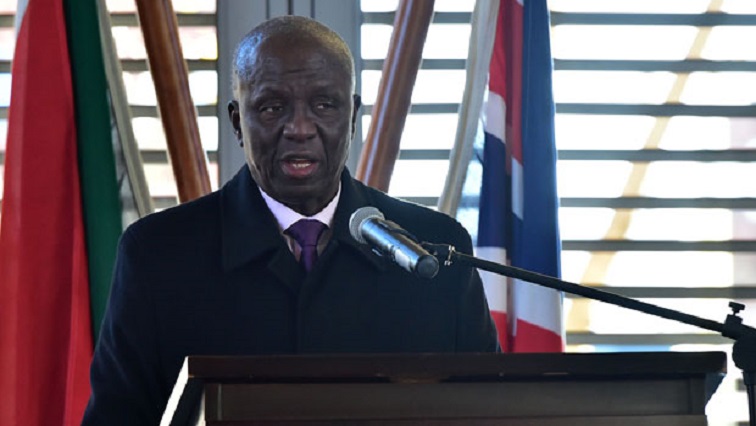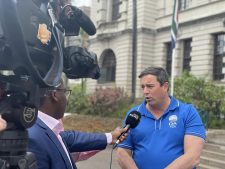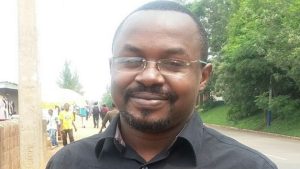As further reports of state corruption emerge – South African journalists will have to continue to work diligently to expose government officials that are looting the state’s coffers.
That’s according to retired deputy-chief justice Dikgang Moseneke, who was the guest speaker at a fundraising gala dinner, hosted by the South African National Editors’ Forum (Sanef) in Johannesburg.
The event coincides with the 45th anniversary of “Black Wednesday” commemorated this week.
In recent years, South Africa has traversed through troubled times; breaking free from the shackles of state capture, riots, a deadly pandemic that claimed thousands of lives, and even the burning of Parliament.
The country’s journalists have been lauded for working with principles and morality – and giving hope to the nation.
Sanef national chairperson Sbu Ngalwa says, “Even though we may have thought at some point that all is lost in this country – there is justice. It may be turning slow but I think something is happening. I can argue without any fear of contradiction, while all of that was happening, while the country was being looted, while others who had the power turned the other way. It was the media and the judiciary that gave freedom-loving South Africans the hope that this hard-won freedom of ours and democracy will not wither away.”
The retired deputy-chief justice honoured journalists across the globe, risking their lives to report from war zones and those uncovering deep-rooted corruption.
Freedom of journalists: Makhudu Sefara
He says, to date many journalists especially women are being threatened for doing their jobs.
“Journalists across the world are facing increasingly hostile environments. Many have been threatened and assaulted or killed, as they try to search for the truth and publish facts. Shireen Abu Akler, a TV journalist was killed while reporting on an Israeli military raid in Palestine. She was shot in the head,” adds Moseneke.
Moseneke played a pivotal role in South Africa’s struggle for freedom.
At the age of 15, Moseneke was arrested, detained, and convicted of participating in the anti-apartheid activity.
He was sentenced to 10 years imprisonment, all of which he served on Robben Island.
Now decades later – he says, it seems the sacrifices made by the many brave men and women seems to have been in vain.
“The revolution has failed, the quest to alter the relations on society in favour of the excluded and marginalised has failed. High political and social ideals of those of us that were part of our glorious struggle have come to zero. We paid lip service to the state and governance that we deserved and done nothing about it. Look at now, a weak state,” adds Moseneke
He has encouraged journalists to continue working with honesty, diligence, and ethics, in uncovering the truth.
“As I read what you journalists write. Virtually every other state or provincial department is a sight of corruption, a sight of crime against our people. How could it be that so many departments are being investigated for this thuggery that extends to billions.”
“Journalists will have to continue to do their damnest to investigate, inquire and inform of this high level of mis-governance. Journalists will have to stick to their craft, in accordance with press codes, with ethics,” says the retired deputy-chief justice.
The video below discusses media freedom:






